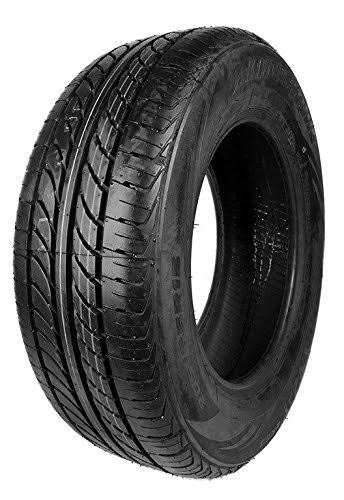Indian elastomer industry has hit the rock bottom battered by Coronavirus lockdown posing an uncertainty in future growth with collapse in prices of upstream crude oil and dwindling demand. With downstream tyre manufacturing companies incurring a loss of around INR 50000 million, elastomer demand from tyre sector is anticipated to suffer a drastic slump with no hopes of recovery in the coming months. End use industries, primarily the automotive has seen a huge drop in sales for the quarter and therefore poor demand for elastomer for tyre and non-tyre applications are likely to be the precipitating factor for loss to the industry, both manpower and revenue-wise. Furthermore, violation of social distancing and sanitation norms has put the automotive manufacturing belt along Pune, Ranjangaon, Chakan, Nashik, Pimpri-Chinchwad, Aurangabad have been put under curfew. With zero production in automotive sector through the lockdown period, the industry anticipates revenue loss to the tune of INR 1 lakh crore amounting to about 0.47 per cent of GDP. Automotive sales for the first quarter would be down by more than 50 per cent with showrooms being shut and high uncertainty in demand. Production units are spread across India and uplifting the lockdown in a systematic manner would still mean partial operation as a feeder factory might fall in a different zone where the lockdown restrictions might not have been eased, thus, leading to an overall tardiness in the industry. Parts manufacturing, testing and assembly line must operate in tandem to ensure minimal bottlenecking in the supply-chain ecosystem. Therefore, recovery is expected to be painfully slow if different tiers in the supply chain are not allowed to resume operation simultaneously.
Visit more info: https://www.chemanalyst.com/
According to the Indian Rubber Dealer Federation, there are over 0.25 million tonnes of rubber inventories piled up in the country on muted buying sentiments as an outcomes of production cuts and shutdowns. Adapting to the current scenario, companies are compelled to cut off salary or lay off jobs in order to make up for the loss in revenue. Owing to the ripple effect of prolonged shutdown amid Pandemic misery, Apollo tyres, one of the largest tyres manufactures of the country, has declared a voluntary reduction in salaries of leadership and management team by 25 and 15 per cent, respectively. JK tyres, also announced reduction in finances by lowering the salaries of high authority workers to combat to the losses. Similarly, Apollo Tyres senior management senior management will have a cut in compensation by 15 per cent to 25 per cent with Chairman taking the higher cut-rate than the senior management. Another exemplary has been the CMD of Bajaj Auto who would not be getting any salary through the lockdown period. As sales and profitability in the automotive business have plunged to all time low, the industry veterans are expecting situation to worsen in the next couple of months. This has been supplemented by the slash in demand in the travel and tourism industry. Whole of our population is refraining from travelling anywhere in the country and this has impacted the travel aggregators such as Ola, Uber, Meru and private taxis. The frequency of run has dropped leading to stagnancy in the replacement tyre demand. The OEM sales and replacement demand both seem to have buckled under the pressure of curtailed demand. Demand for natural rubber
News and Deals : https://www.chemanalyst.com/NewsAndDeals/NewsHome
In view of the precarious condition in the economy, production of tyres have been halted across the country with only partial operation seen in some units. The tyre industry itself is looking at a loss of about INR 5500 crore due to the pandemic. As movement has been completely restricted and people are voluntarily practicing social distancing, automotive and private ownership of vehicles has drastically dropped, thus leading to a muted demand for tyres. Inventory has built up all along the supply chain from raw materials to finished products.
Unlike other industries where remote-based working is possible, production units cannot work on the same principles. Therefore, workers downtime is the highest in production and manufacturing sector. Impact on the revenue of the industry is expected to be the lowest owing to contractual nature of job with just about INR 2800 crore at stake. However, industry is set to see job-cuts to the tune of 40 thousand due to the outbreak of the pandemic. While some plants have resumed partial operation such as that Apollo Tyres Perambra Kerala plant as the State Governments have given a green nod to start production, many are yet to resume operations. They must do so following all hygiene and sanitation procedures. Those plants that have started operations are running units at sub-optimal level with just 30 to 40 per cent efficiency. If production is not ramped up soon or no stimulus to demand is expected, it would erode the margins of elastomer industry and affect the financial health of companies. Elastomer industry is likely to bounce back to normal by Q4 of FY2021 as the market is anticipated to stabilize by then, which means the year ahead does not look very promising for the industry.
ChemAnalyst.com is a subscription based Digital Platform covering in depth data & analysis on 175+ chemicals and petrochemicals. It offers granular level real-time pricing data, news and business intelligence in chemicals and petrochemicals to give you a sustained competitive advantage across the industry value-chain.
Source: ChemAnalyst



